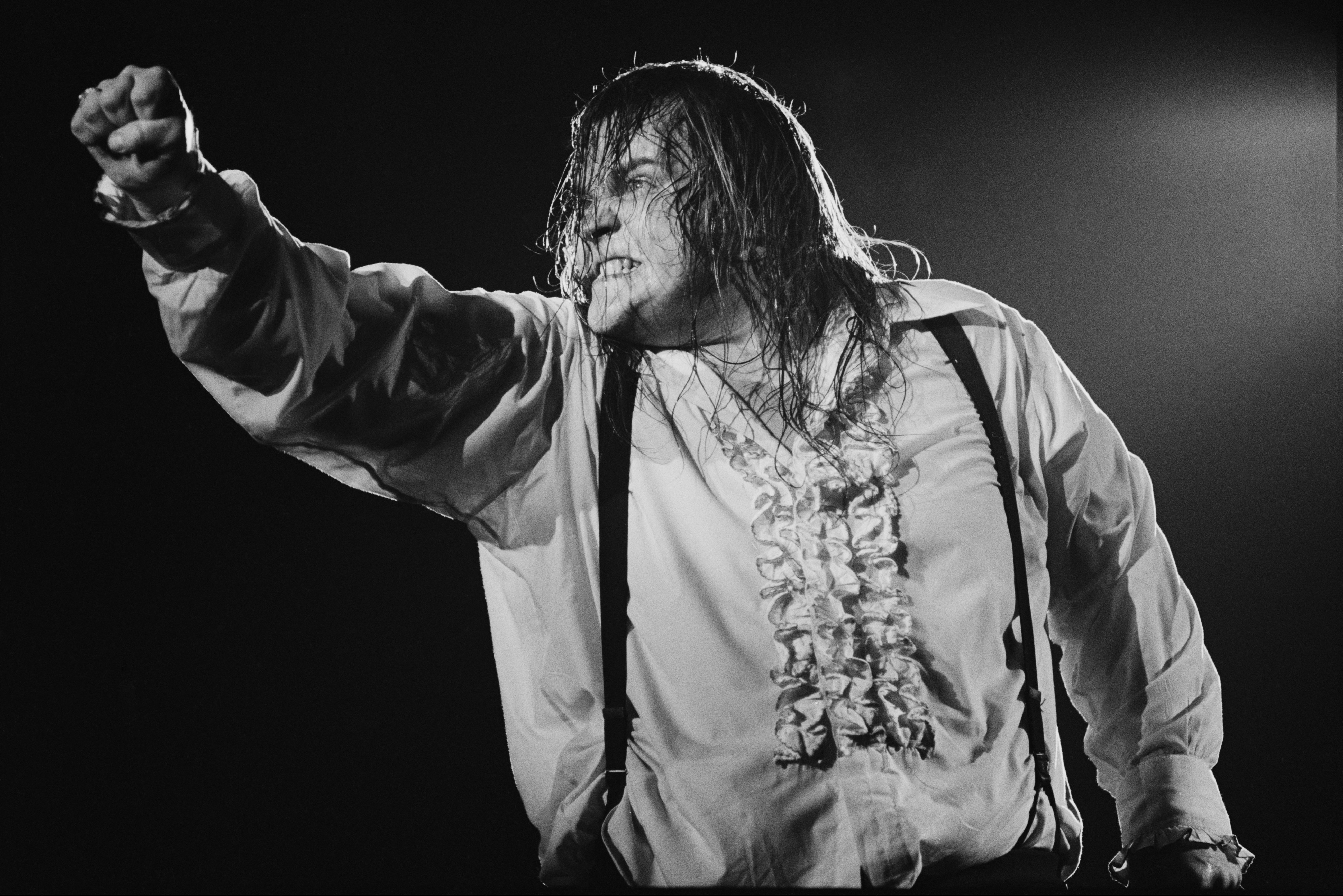The term “larger than life” tends to get tossed around frequently when describing Meat Loaf. Part of that may be due to his commanding physical presence; you don’t get a nickname like Meat by being particularly lithe. But even when you remove his size from the equation, everything about the man responsible for Bat Out of Hell, the fourth best-selling studio album of all time with more than 43 million copies sold worldwide, was big: big personality, big operatic vocals, big over-the-top performances, big hits.
Part of what makes Bat Out of Hell — and Meat Loaf’s career in general — so remarkable is just how unlikely its success was. It was released in 1977 right at the same time punk was entering its heyday, the same year as the Sex Pistols’ Never Mind the Bollocks and the Ramones’ Rocket to Russia. It was, to put it mildly, not a time when an overwrought, musical theater-inspired rock opera full of 10-minute songs loosely based on the story of Peter Pan would be considered particularly cool or fashionable. For two and a half years, no label was interested in it.
And yet, of course, it eventually became a massive success. That’s thanks in no small part to Meat Loaf — who passed away on Thursday at the age of 74 — himself. It was Jim Steinman who wrote the record, but it was the vocalist who sold the hell out of it.
The performance he brought to the tracks, both vocally and in the form of onstage theatrics, allowed the humor inherent in them to shine. He was singing campy, Broadway-style tunes about 1950s Americana, but he did so with the same sweaty intensity as rock’s best frontmen. He was simultaneously ridiculously over-the-top and really fucking great, so devoted to the material he was performing and the character he was playing that it was impossible to know exactly what to make of him. It’s easy to smirk “is this guy for real?” the first time you watch him perform “Paradise By the Dashboard Light” or “Bat Out of Hell” or “Two Out of Three Ain’t Bad,” but give it about 10 seconds, and it won’t matter one way or the other — he’s won us over, regardless of whether he’s being sincere or just completely committed to the bit.
Todd Rundgren, who produced Bat Out of Hell, did so because he saw it as a funny parody of Bruce Springsteen’s Born to Run.
“I was only interested in taking advantage of the fact that Meat Loaf is playing the role of the hunky ’50s frontman but he is anything but, you know?” he told me back in 2017. “He’s got that operatic voice that exceeds any sort of gruff rock and roll kind of thing, so that’s going in one direction, but the fact that he’s so obese and uncharacteristic and sweaty and kind of in a whole other direction that is not what people remember about that genre of music. So it was juxtaposing the two things. The music is supposed to be completely believable. But it’s just juxtaposing it with this unbelievable character that Meat Loaf represents.”
To his credit, all signs point to the man who was born Marvin Lee Aday being in on the joke. Though he often recalled being mercilessly bullied about his weight as a child in interviews, he maintained a self-deprecating sense of humor about it. He initially auditioned for Steinman with a song called “(I’d Love to Be as) Heavy as Jesus.” The songwriter reportedly told him, “By the way, you’re as heavy as two Jesuses.”
“It was my kind of humor,” Meat Loaf recalled in 2017. When he participated in Major League Baseball’s All-Star celebrity softball game, he sported a jersey that simply read “Loaf” on the back as if it were his last name. He proposed to his first wife, according to Rundgren, by presenting her with a whole salmon instead of a ring. And when he made his enormous comeback with “I Would Do Anything for Love (But I Won’t Do That)” in 1993 — once again in an era, this time grunge instead of punk, when his style of music would be the last thing expected to be commercially successful — he did so dressed as a Beauty and the Beast-style monster sulking in an empty mansion full of a truly absurd number of candelabras. He had to have known that all of this was objectively funny.
But in addition to being one hell of a singer, he was also an actor — starring on Broadway in Hair and later delivering memorable performances in movies like The Rocky Horror Picture Show and Fight Club — and he was savvy enough to know that in order for something like Bat Out of Hell to work, he’d have to play it completely straight. An album that over-the-top and out-there only works if you lean in completely and fully go for it; any kind of obvious signaling that it was a gag would only take the air out of it.
“I sang every song we ever did in character,” Meat Loaf told Rolling Stone in 2021. “I left me. I was not method. I didn’t have to find something in my past life to be able to sing his songs. I became the song.”
Ultimately, that’s the genius of Meat Loaf; he was able to truly become the songs he sang in a way that actually made them better. In just about anyone else’s hands, they would have been schmaltzy and insufferably earnest, or obvious, lifeless parody. But thanks to his talent and devotion, they were neither, instead becoming the kind of enduring classics that will be gleefully belted out at karaoke bars across the world until the end of time — and that’s pure and good and right.
This article was featured in the InsideHook newsletter. Sign up now.
